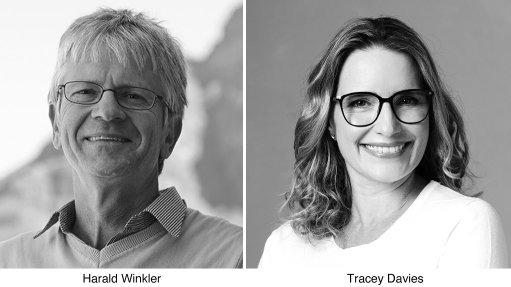Company creates guideline to conserve water
National support programme the National Cleaner Production Centre South Africa (NCPC SA) and the Council for Scientific and Industrial Research (CSIR) have constructed a detailed water assessment guideline, published in May this year.
The guideline aims to support industries and domestic water users by providing them with a practical guide on how to conserve and manage water.
NCPC SA project manager Lindani Ncwane says the NCPC SA and the CSIR have invested R180 000 collectively in creating this guideline.
The inefficient and overuse of water –where a large volume of contaminated water results in loss of profit, environmental degradation and, at times, system overload at the local treatment works – is a common crisis reported globally, but is more pronounced in developing countries.
Such use has detrimental effects on the availability of water and its use in the domestic, agriculture and industrial sectors, he notes.
“To combat this issue, we need to follow a well-defined method to reduce freshwater use, as it will reduce electric and gas bills, and provide better operational efficiency and savings in wastewater discharge costs – this is a way towards a successful, sustainable organisation.”
Ncwane states the challenges are the availability of in-house skills sets and the time to commit full-time resources.
Thus, the industrial water efficiency guideline outlines a systematic methodology to assist organisations, and to conduct audits or assessments for its facilities through in-house or externally appointed water champions.
The focus in the guideline is primarily on water efficiency; however, through the symbiosis of water and energy, the energy-use topic is briefly discussed where relevant, adds Ncwane.
The guideline also includes the principles of water management such as reducing losses, reducing overall water use and employing water reuse practices.
It also offers understanding of tariffs, meters and submeters, leak detection and water management strategy.
Ncwane notes that most industrial activities – including washing, rinsing, heating, cooling, shop clean-up and the outdoor use of water – are water intensive, and such activities eventually lead to the overuse of water.
There are numerous ways of achieving industrial water efficiency, which is what the guideline addresses. Some of the best outcomes that can be achieved using a water assessment are the recycling of water or to augment supply using rainwater, Ncwane adds.
The assessments in the guideline can also help to identify the potential use of alternative sources of water.
It further includes water conservation measures, process modification to reduce water consumption, in-plant reuse of reclaimed wastewater and using treated wastewater for non-industrial purposes.
The National Development Plan targets an average reduction in water demand of 15% below a 2012 baseline level in urban areas by 2030.
Ncwane says that NCPC SA has created a target whereby average domestic consumption must be reduced to 175 ℓ/d/person by 2025, which is possible if the guideline is followed accurately.
“It is without doubt that this is possible if the industrial sector contributes to water conservation and the water demand management programme.”
A successful guideline must prioritise needs, set well-informed goals, establish current performance minimums and carefully plan a course of action.
The guideline has supported the industry by setting out a structured approach in conserving water and a methodology for understanding the cost of water, tariff structures and methods of conducting water assessments, Ncwane concludes.
Article Enquiry
Email Article
Save Article
Feedback
To advertise email advertising@creamermedia.co.za or click here
Press Office
Announcements
What's On
Subscribe to improve your user experience...
Option 1 (equivalent of R125 a month):
Receive a weekly copy of Creamer Media's Engineering News & Mining Weekly magazine
(print copy for those in South Africa and e-magazine for those outside of South Africa)
Receive daily email newsletters
Access to full search results
Access archive of magazine back copies
Access to Projects in Progress
Access to ONE Research Report of your choice in PDF format
Option 2 (equivalent of R375 a month):
All benefits from Option 1
PLUS
Access to Creamer Media's Research Channel Africa for ALL Research Reports, in PDF format, on various industrial and mining sectors
including Electricity; Water; Energy Transition; Hydrogen; Roads, Rail and Ports; Coal; Gold; Platinum; Battery Metals; etc.
Already a subscriber?
Forgotten your password?
Receive weekly copy of Creamer Media's Engineering News & Mining Weekly magazine (print copy for those in South Africa and e-magazine for those outside of South Africa)
➕
Recieve daily email newsletters
➕
Access to full search results
➕
Access archive of magazine back copies
➕
Access to Projects in Progress
➕
Access to ONE Research Report of your choice in PDF format
RESEARCH CHANNEL AFRICA
R4500 (equivalent of R375 a month)
SUBSCRIBEAll benefits from Option 1
➕
Access to Creamer Media's Research Channel Africa for ALL Research Reports on various industrial and mining sectors, in PDF format, including on:
Electricity
➕
Water
➕
Energy Transition
➕
Hydrogen
➕
Roads, Rail and Ports
➕
Coal
➕
Gold
➕
Platinum
➕
Battery Metals
➕
etc.
Receive all benefits from Option 1 or Option 2 delivered to numerous people at your company
➕
Multiple User names and Passwords for simultaneous log-ins
➕
Intranet integration access to all in your organisation

















